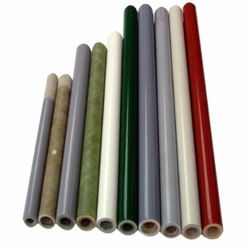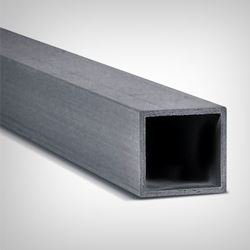Benefits of FRP Pipes:
- They can be used by water supply industries or portable water systems.
- They are used by the sewage industry due to their corrosion-resistant properties.
- They are also used by chemical and fertilizer plants to regulate the flow of liquid.
- They are taken as the best choice for offshore production of oil.
FRP Pipes – Features
Corrosion Resistance
FRP pipes are made from a composite of glass fiber and polyester resin. FRP is an inert substance with superb corrosion resistance, chemical resistance, and weathering resistance.
Non-Toxicity
FRP Pipes can be rendered in exact accordance with the laws of forces governing the construction of pipe that will come into contact with potable water and foodstuffs thanks to filament winding processing technologies combined with polymerization and vaporization processes.
Hydraulic Efficiency
FRP pipes with a smooth internal surface have a high “c” rating, allowing them to carry a high flow at a low frictional head loss, lowering pumping costs and saving energy.
Longer Service Life
The hydraulic design base (HDB) of FRP Pipes is such that it would have a protection factor of 1.8 times its pressure class even after 50 years of continuous operation. In comparison to C.I., STEEL, G.I., and P.S.C. Pipes, FRP Pipes can have a much longer operating life, longevity, and performance at a much lower life-cycle expense.
Surge Pressure
High surge pressure tolerance In comparison to steel and C.I. pipes, FRP pipes have a greater resistance to surge strain and higher stiffness, which means they have a lower risk of bursting due to water hammers.
Lightweight
As compared to other materials, FRP pipes have a lower strength-to-weight ratio. It is low in weight due to the use of 1/10 P.S.C., 1/5 steel, and 1/8 C.I. As a result, FRP Pipes are simple and quick to add, handle, modify, and fix.
Low Thermal & Electrical Inductivity
FRP Pipes have superior thermal insulating properties, so they don’t need to be heated on the outside to keep the temperature within the pipe consistent. For FRP Pipes, cathodic security is also not needed.




